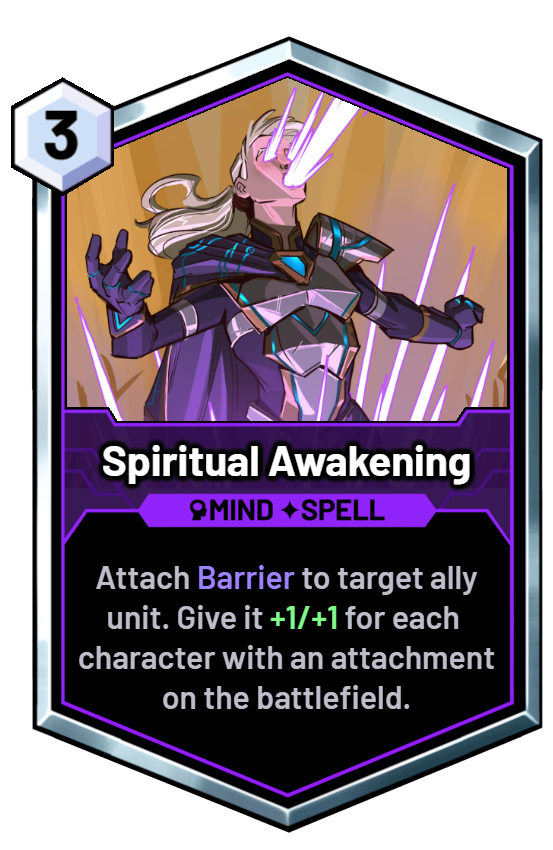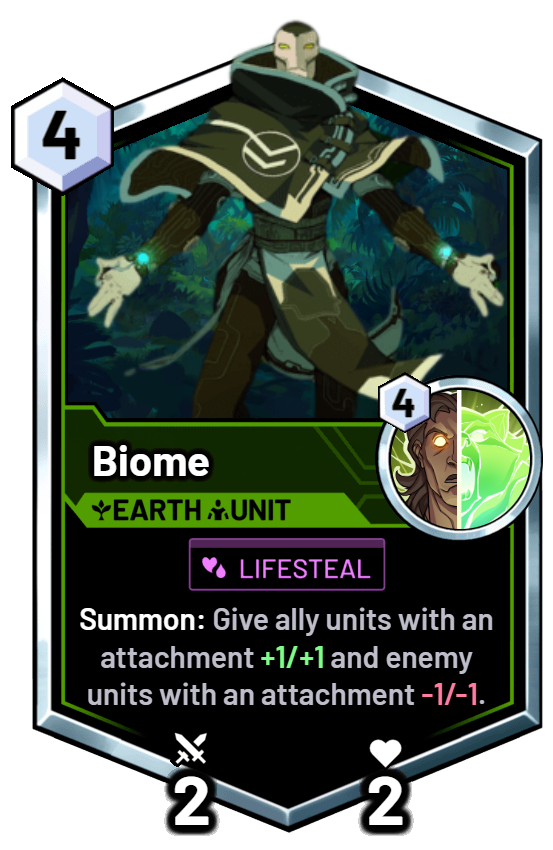Hello everyone, the Prism Design Contest was amazing thanks to your contributions. We received many wonderful ideas. Under this post, I will share all of the eligible submissions. I will share the Top 5 in order, and the rest will be ordered by submission date, not by their score ranking. Feel free to take the discussion to Discord and let us know about your favorite. A special note, Mantichore drew his own art for this contest, and they look really amazing, special thanks to him for this effort. Finally, big thanks to our jury members, Just Add Bacon, Eufrat, Matta, Coulter_Baker, and Marcelo for their support to Skyweaverleagues since 2021.
1-) Phantasm by Cytus
<Lore> In the sky, the realm of phantasm is a elusive legend, and also one of the explanations for many paranormal phenomena. Many scholars believe that the power of the subconscious is very potent, and the realm of phantasm may be the manifestation of the subconscious. Therefore, the exploration of the phantasm has never stopped. <Mechanics> The prism comes with a special keyword, Resonance, which allows players to target an enemy unit as a card with Resonance got played, and grants the card the same element as the targeted unit (or none if no valid target). Some of these cards open up the possibility to disrupt elemental-based strategies, while also creating synergy with another one of their dual-prism. You can use the buttons on image carousels to view extra cards.

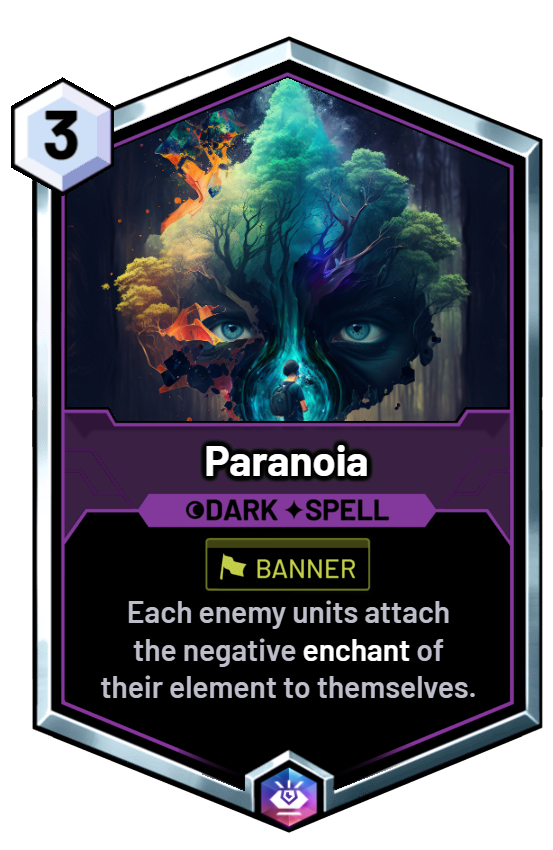



2-) Luck by blankHandle
The “Luck” prism relies on powerful effects that can go wrong. Whether you are conjuring cards, summoning from deck, or attacking randomly; a the turn for a luck player can range anywhere from amazing to downright beneficial to the opponent. The luck player tries to sneak out units cheaper risking a chance that the cost is more then mana. Random effects are abundant in the “Luck” prism a good deck builder needs to be creative to weigh the dice in their favor. The “Luck” player often has interactions that help out their opponent in the hopes that the effect more greatly helps themselves. Mana manipulation is a staple of the “Luck” Prism. Perhaps you are switching the cost of cards, or reducing both players cards, or card costs change as the turn evolves, as they say, mana is negotiable.
A good luck player is blessed by Ethera and is called a cheater by all who oppose them.
I’ll leave you with a famous quote from a classic “Luck” player, “One of us is getting lethal this turn and I have no idea who it’s gonna be!”

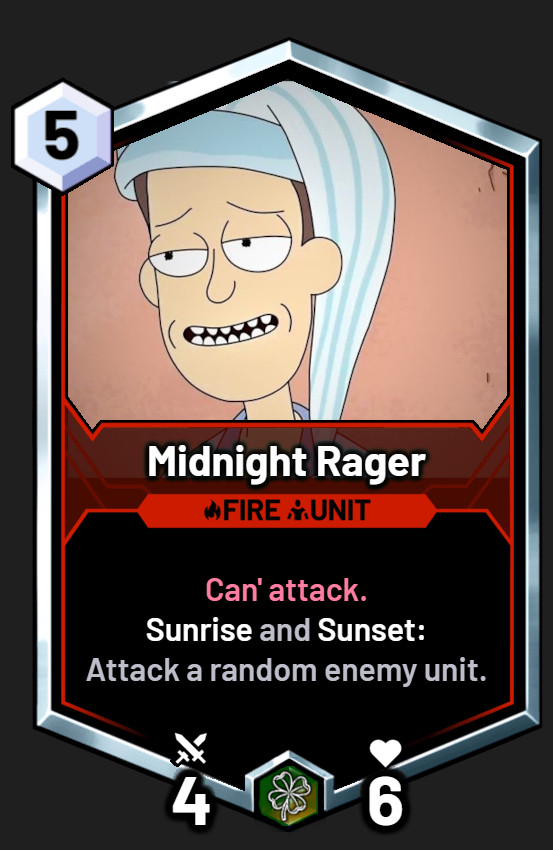
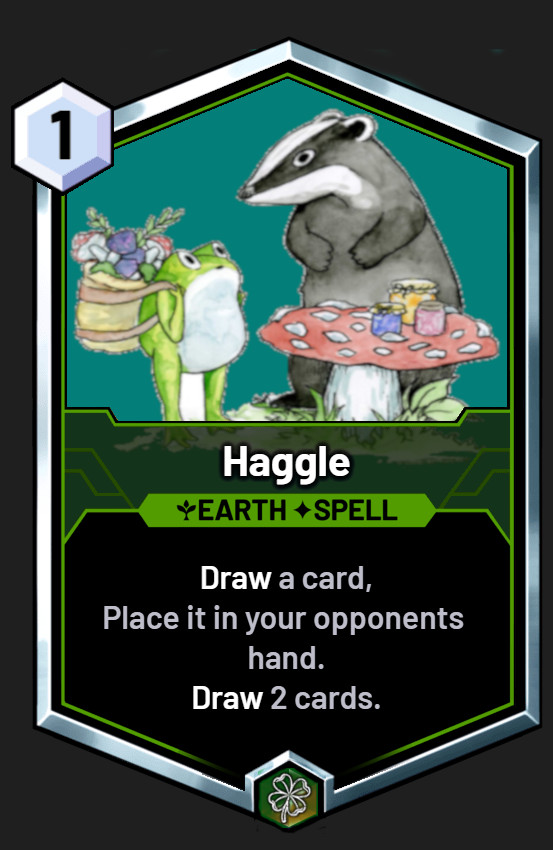
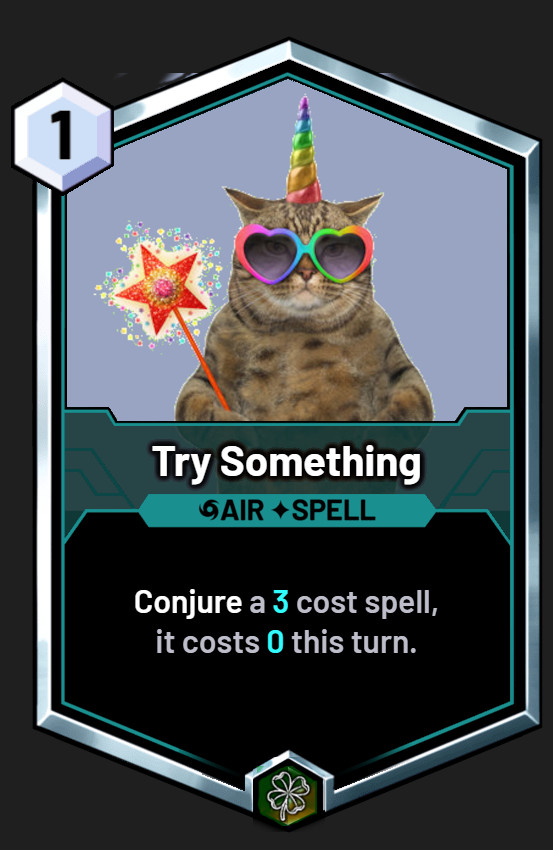
3-) Paradox by iBlunder (HenryChess)
First discovered in the Dreamfield, the Paradox Prism is the representation of infinite possibilities. It shows to the people the past, the future, and even alternate timelines. Banjo has discovered some things that will happen: the Armis is so corrupt it breaks down, then people reform it and name it Armis2. He also discovers some interesting alternate universes and counterparts of people in Sky; for example, Bard Rock is a reanimated skeleton whose music has healing powers in an alternate timeline.
Gameplay-wise, Paradox cards are two cards in one; you can choose what effect you want by targeting enemies or allies. The prism introduces a new keyword with the same name, Paradox: an effect you trigger by targeting allies instead of enemies. If there’s a Paradox keyword on a unit, you can attack allies instead of enemies to trigger its Paradox effect. If there’s a Paradox keyword on a spell, simply play it on an ally to trigger the Paradox effect.
Please note: (1) Attacking an ally with a unit does not damage the attacked ally unless the card says otherwise. (2) Attacking an ally with a unit makes it no longer able to attack anything this turn unless you Ready it again.
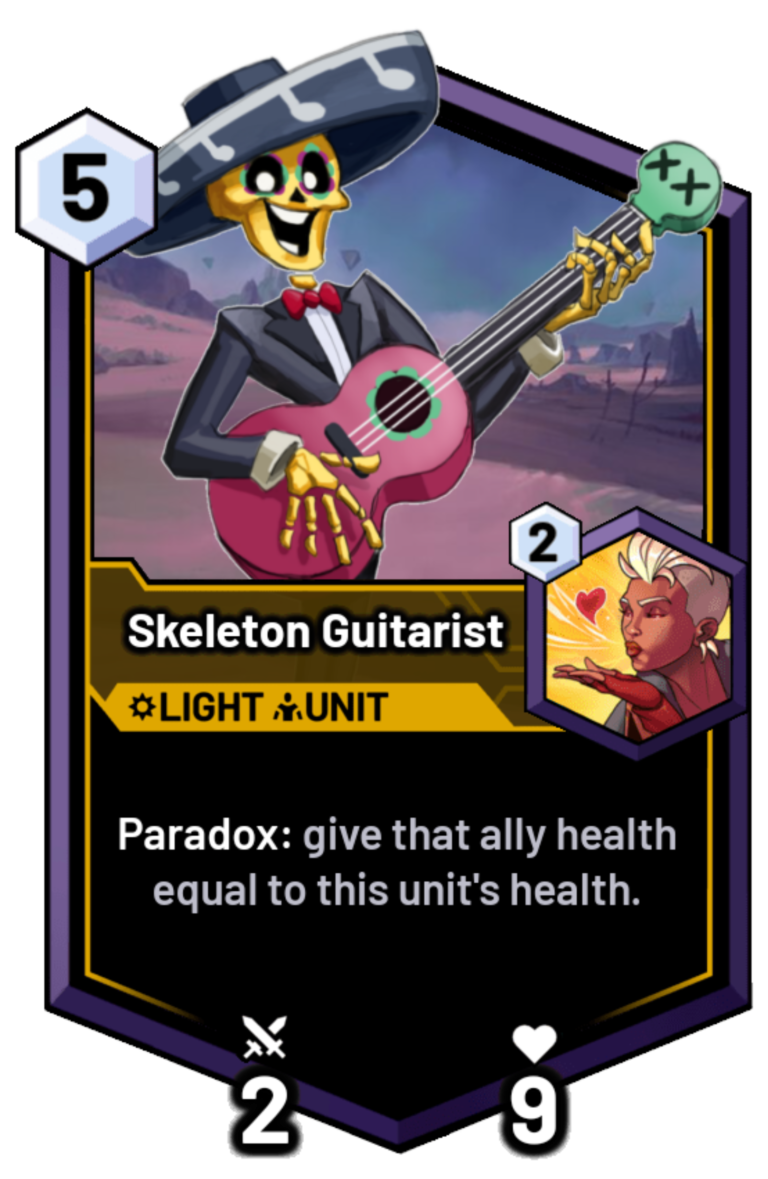
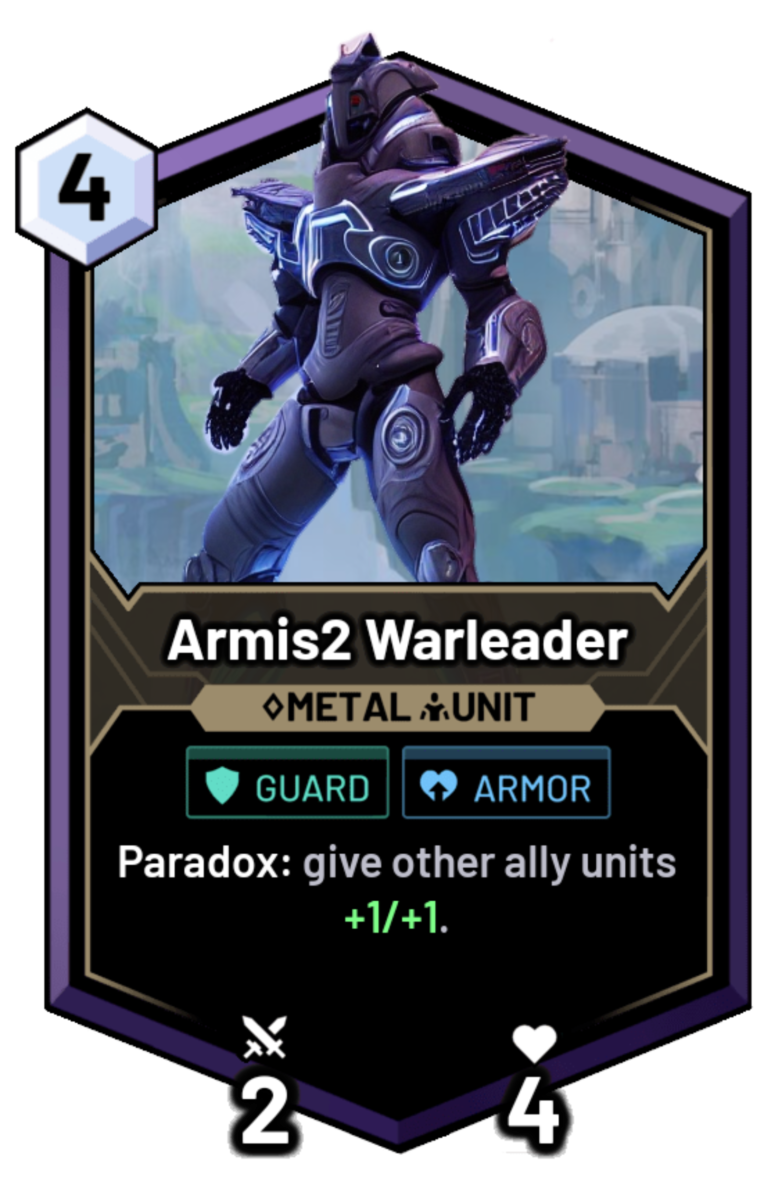

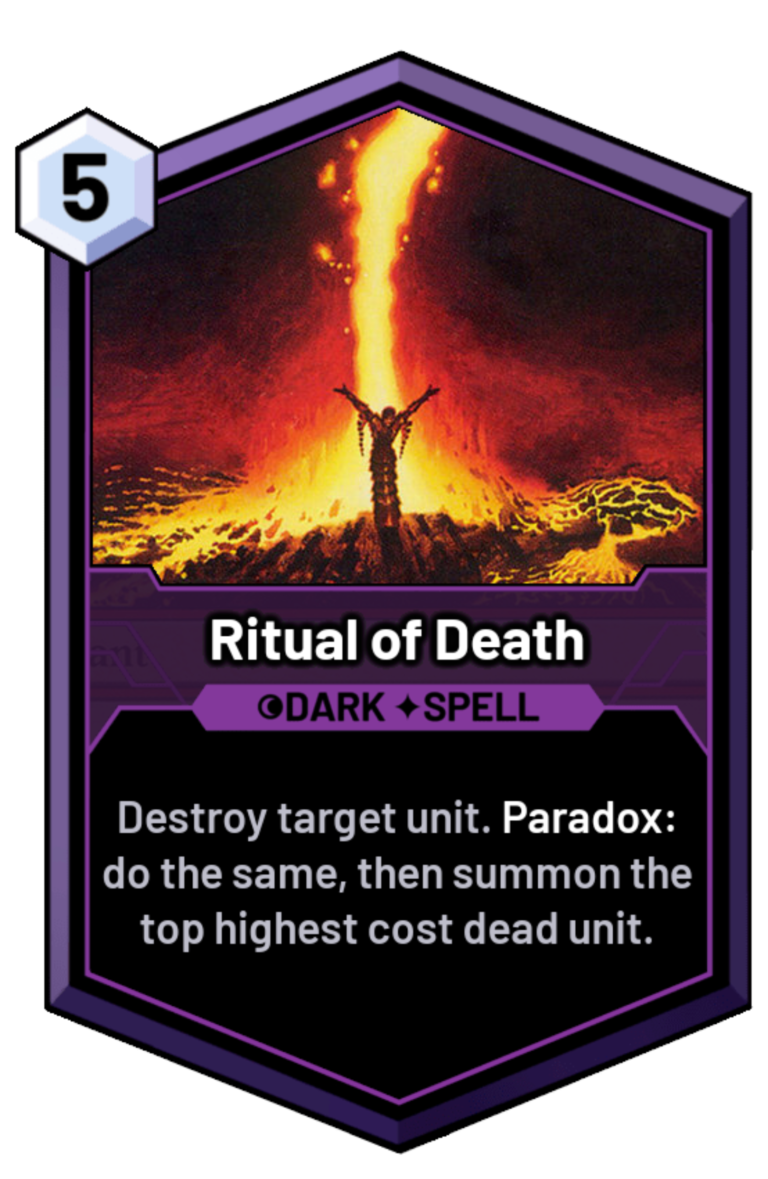
4-) Will by Lagikrus
All the others heroes in the sky borrow the elements to their use, but the Shaman wields all the true power of the elements, harnessing their presence in the battle.
The Will prism aims to take advantage of the infused element mechanic by flooding the board. To answer the boons and bane of the elements, it has access to a new enchantment: “Elemental Bless” that changes the enchanted unit’s element to the infused one. All this new tools would open up a lot of possibilities for deckbuilding around elements.
**INFUSED ELEMENT**
An element is infused if it is the predominant one. On the field, when the number of units with the same element is greater than any other one, that element is infused. Some cards could refer to the infused element in the deck or graveyard: in that case the infused element is equal to the element which has more cards in the graveyard or deck. *It could be visually represented by the island’s field changing with the corresponding element’s colour.*
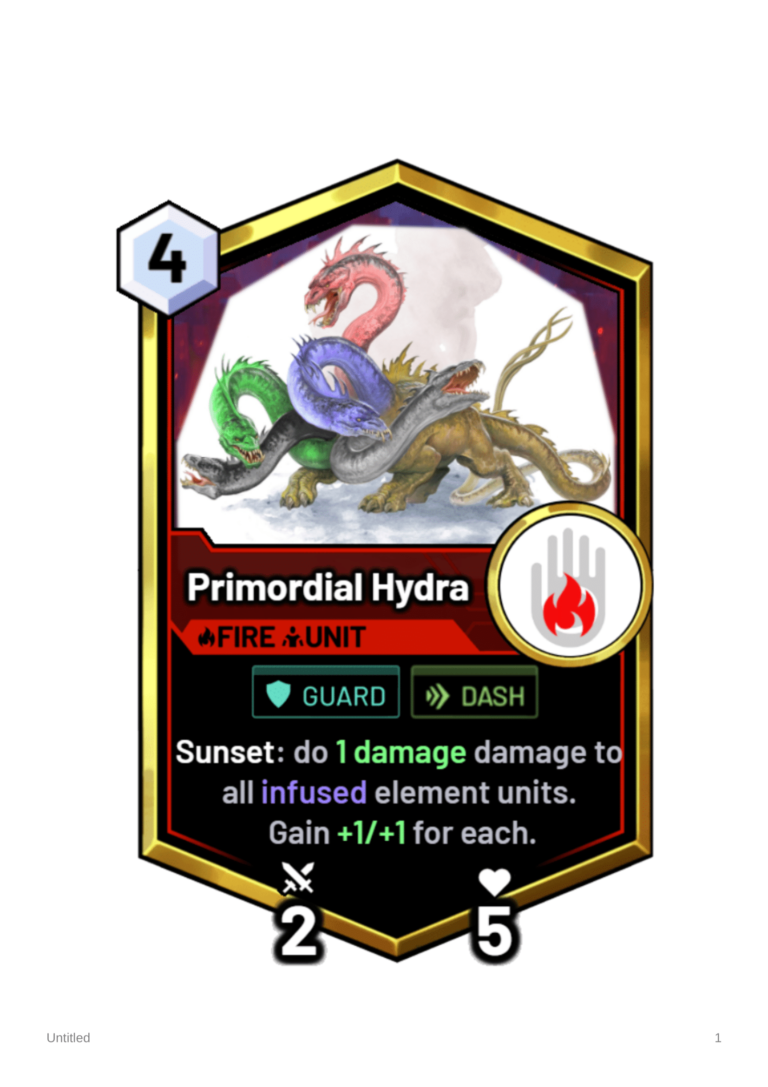

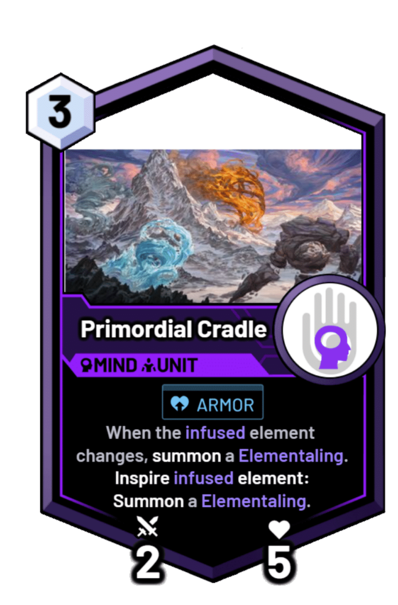
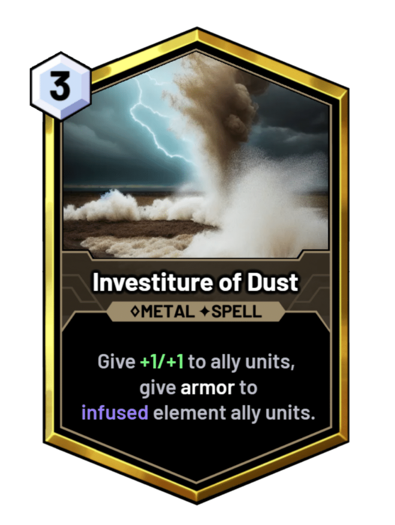


5-) Spirit by Kwalja
Shamans: protecting their livelihoods and the balance between worlds, shaman’s cultivate intuition to tap into ancient knowledge and collective memory to summon creatures among the spirits – gatekeepers living between the underworld and the realm of gods. A young apprentice is travelling with his owl to prove his « manhood » and become a greater fire shaman than his elders. Along the way, s.he collects spores for almost magical potions (a forbidden pratice?).
Spirits: Armarok, a ferocious wolf, lurks at night battling against death defying forces and attacking reckless hunters. Spirits are neither good nor bad therefore conjuring them might be dangerous: an art only given to those who master shamanic intuition and ancient knowledge. There’s a story: once a bizarre masked man dropped an ancient script and a whistle while in a hurry. One day someone blew the whistle and … He is the only survivor although he lost his mind and was left paralyzed by fear. Sometimes at night, he is heard chanting something about brutal and fearsome stick shaped monsters that appeared in the woods – Regardless of his great ressentment, Timber doesn’t seem that scary afterall !
Instinctive strength, shamanism and intuition, omens and rituals, clairvoyance, creatures inspirited by fire and the winds, ancient believes and folklore sum up the universe of this prism. A prism that taps into spirit and natural elements supported by mind, although collective memory seems to be a double-edged sword… It has less synergies with metal. Whereas, heart is antagonistic to shamanic principles.
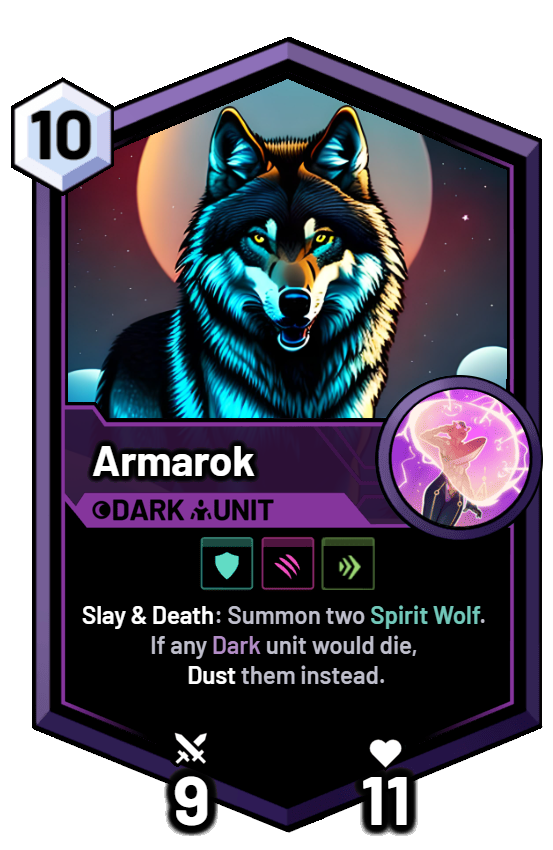

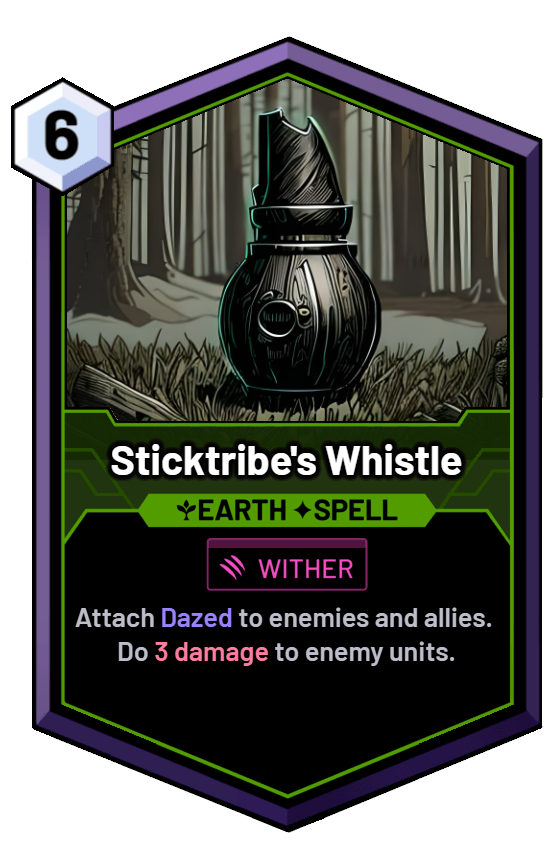

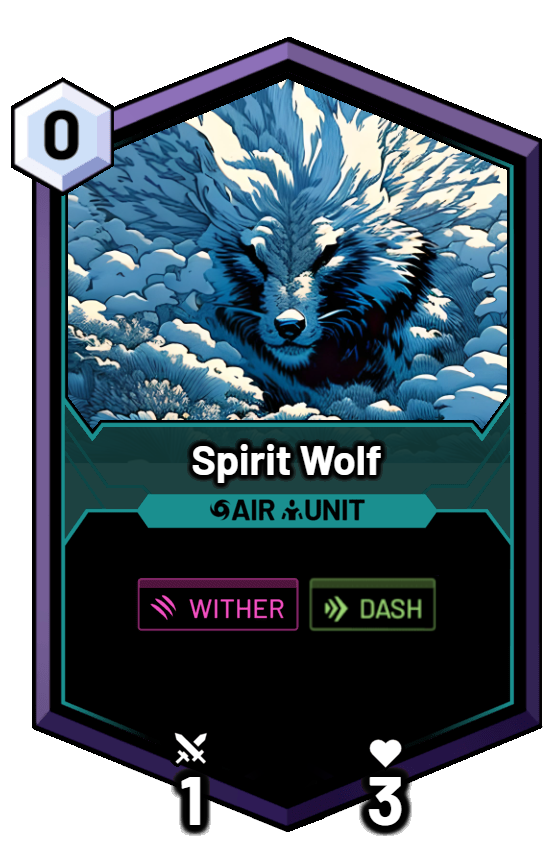
From here the designs will be ordered according to the date they are submitted not by their score.
Devotion by CardboardMonka
Devotion represents a Skyweaver’s ideal to serve a cause greater than themselves. Aspects of devotion are principled and self-disciplined. The ideal they service molds who they are.
At best, they are idealists in service to a cause; loyal and faithful companions; mothers who love their children.
At worse, they are zealots who justify their malicious actions; fanatics who push their ideals onto others, over all others.
Core identity; supporting and buffing units; health as a resource; units mitigating health resource. Minimal banner/hero attacks. Minimal left-side units (high quantity of guard). Left-side units considered significant priority targets. Abundance of lifesteal to mitigate health resource lost. “up to X damage” means it will NOT do lethal damage; will choose the highest possible value.
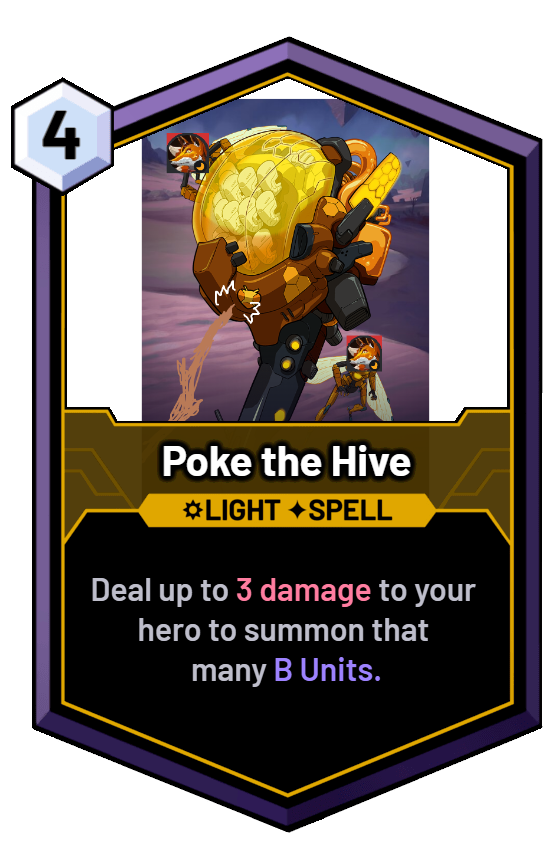


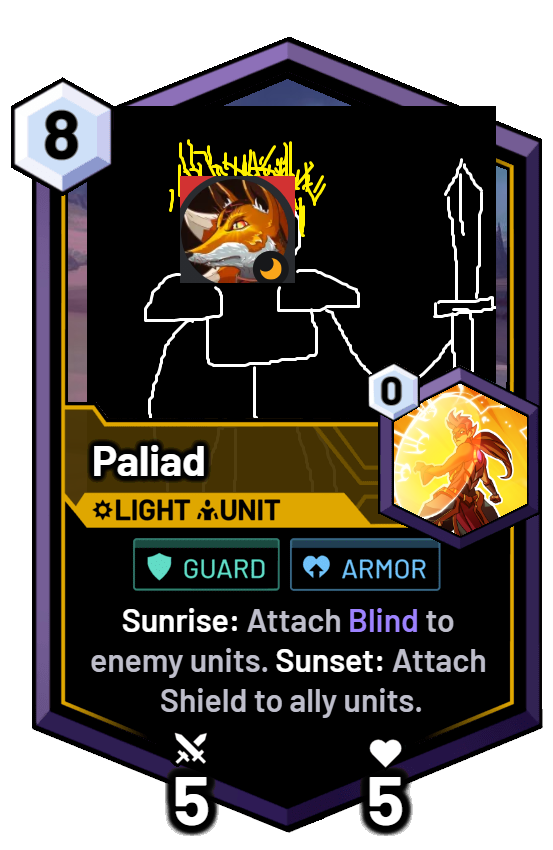
Luck by Altheus
This prism is cost efficient, but it has random effects like getting random buffs, some of it’s spells requires some RNG


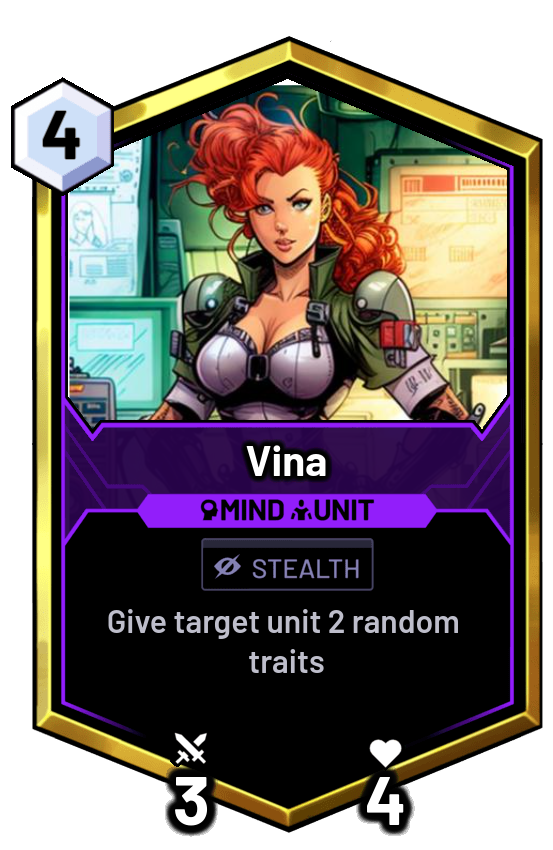
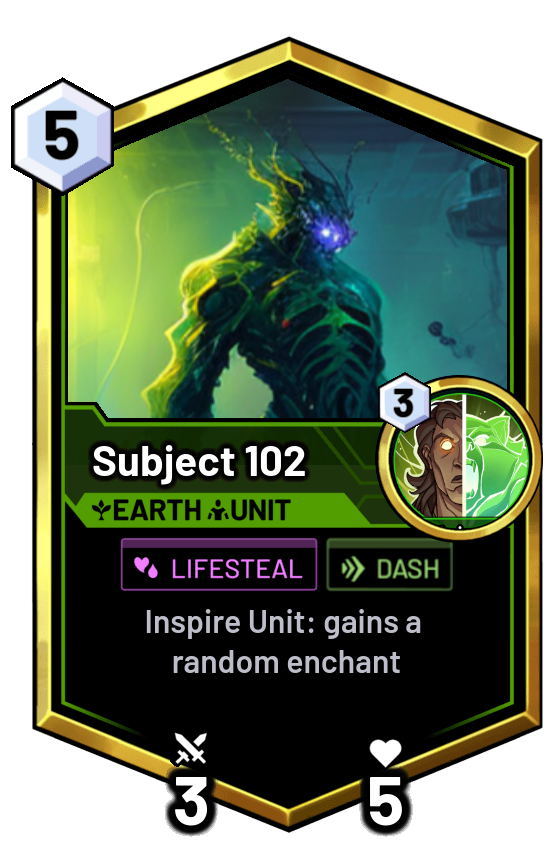
Charisma by Slate-C92
Lore
Charisma-aligned Skyweavers can persuade others with ease and possess vast connections in their societies. To them, reality can be whatever they believe. At best, they inspire change within others, often spearheading social movements to better the living conditions in Sky. Thanks to them, Axolotl-labor and Zomboid-bondage have been outlawed, their freedoms guaranteed as basic rights. At worst, they manipulate many ignorant puppets for selfish goals, often under the guise of a noble cause to elicit fervor.
Core
Charisma interacts with their opponents’ cards by design, often throwing screws in their adversaries’ plans by employing preemptive disruption and card-revealing mechanics. As for themselves, Charisma has a subtheme of (temporarily or permanently) buffing the hero. In general, its cards look at the state of the board/hand/grave for conditional and element-based effects.
Limitations
Charisma also has some fundamental gameplay limitations and areas where it is designed to be less effective than other Prisms. These core limitations will remain consistent, so as to keep the Prism unique. This isn’t to say any of these areas are totally off limits, just that, as a general rule, these are areas where Charisma will be weaker than the other Prisms, and future cards and designs will respect these limitations.
Charisma lacks cards that deal non-combat damage, with the board-state and characters instead as the means (they take matters into their own hands), and though Charisma has access to a variety of tools for every occasion via conditional cards, improper piloting can result in bricking.
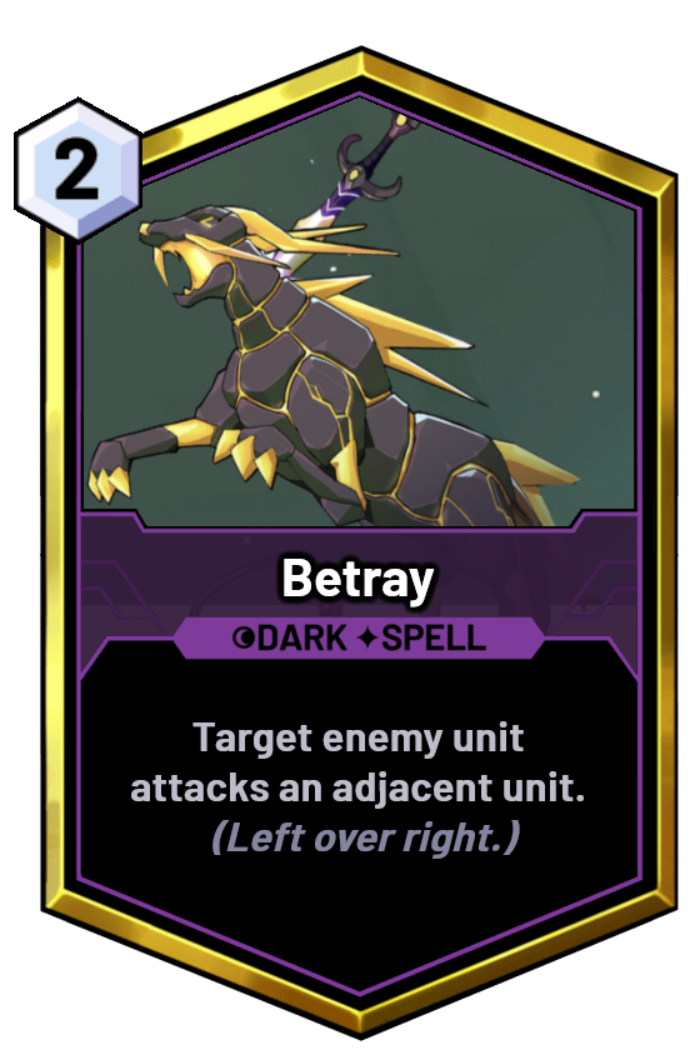
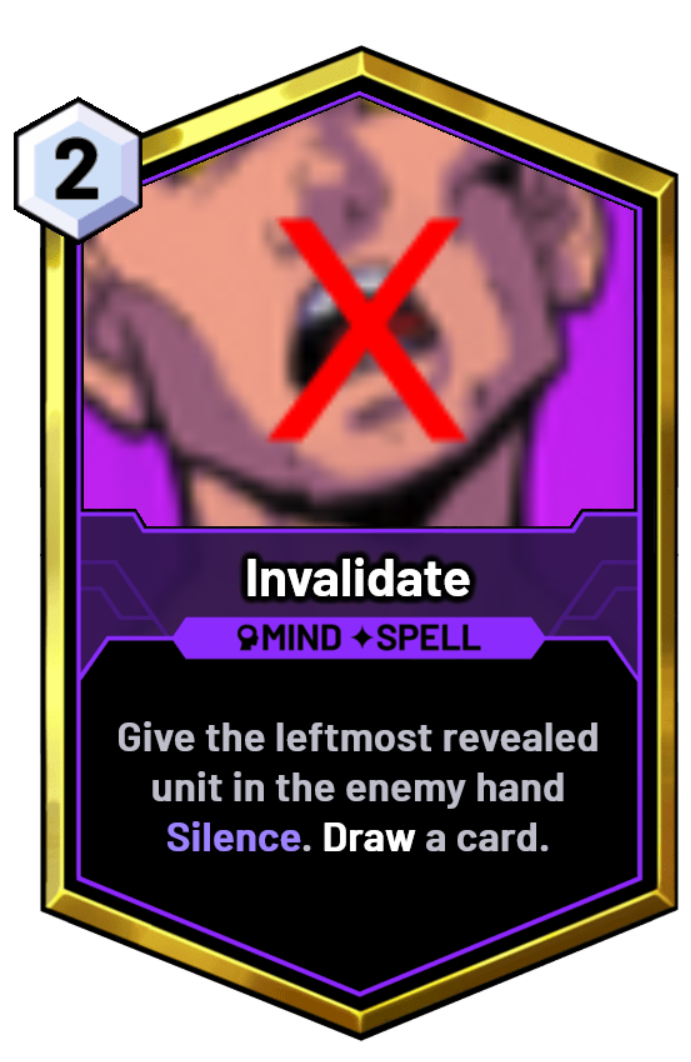
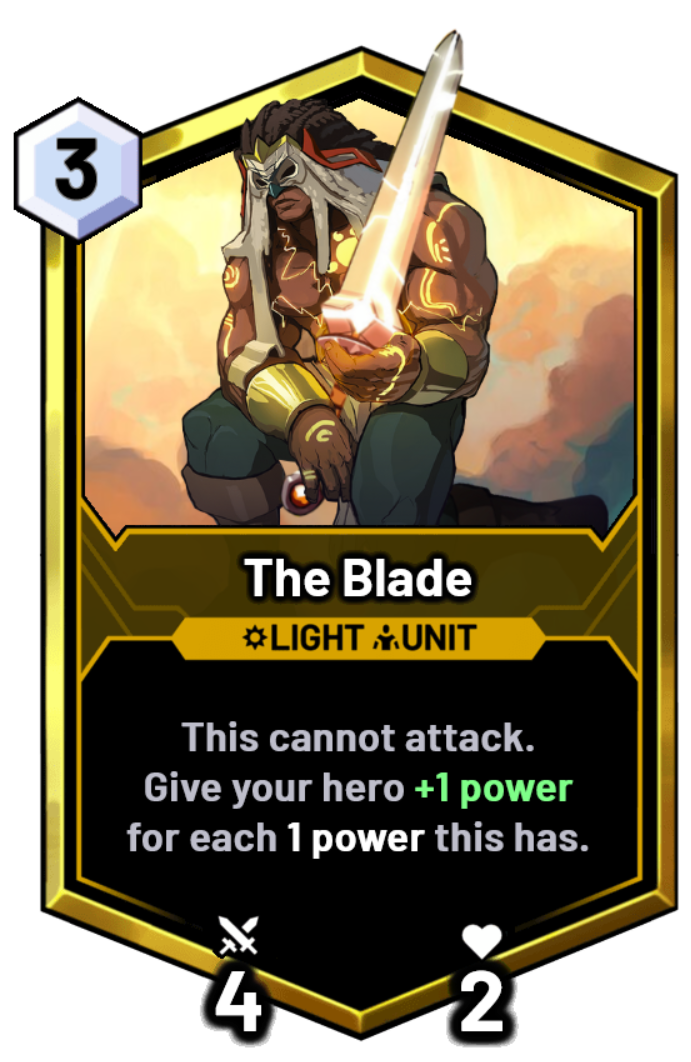

Trickery by 5h3r10ck
The Trickery prism is based on deception, tricks and manipulation of all kinds of elements. Don’t trust your senses between dusk and dawn! Time will never be the same again. What they may lack in power, they make up with cunning plans. Nothing is what it seems to be. It is said that the ruler is named Tharix, and that his disciples are many and loyal to the cause. He’s capable to hurt anyone without a direct confrontation. His spells have crippled armies, leaving demoralised souls on the battlefields, wandering what hit them. When the sun sets, fear the worst!


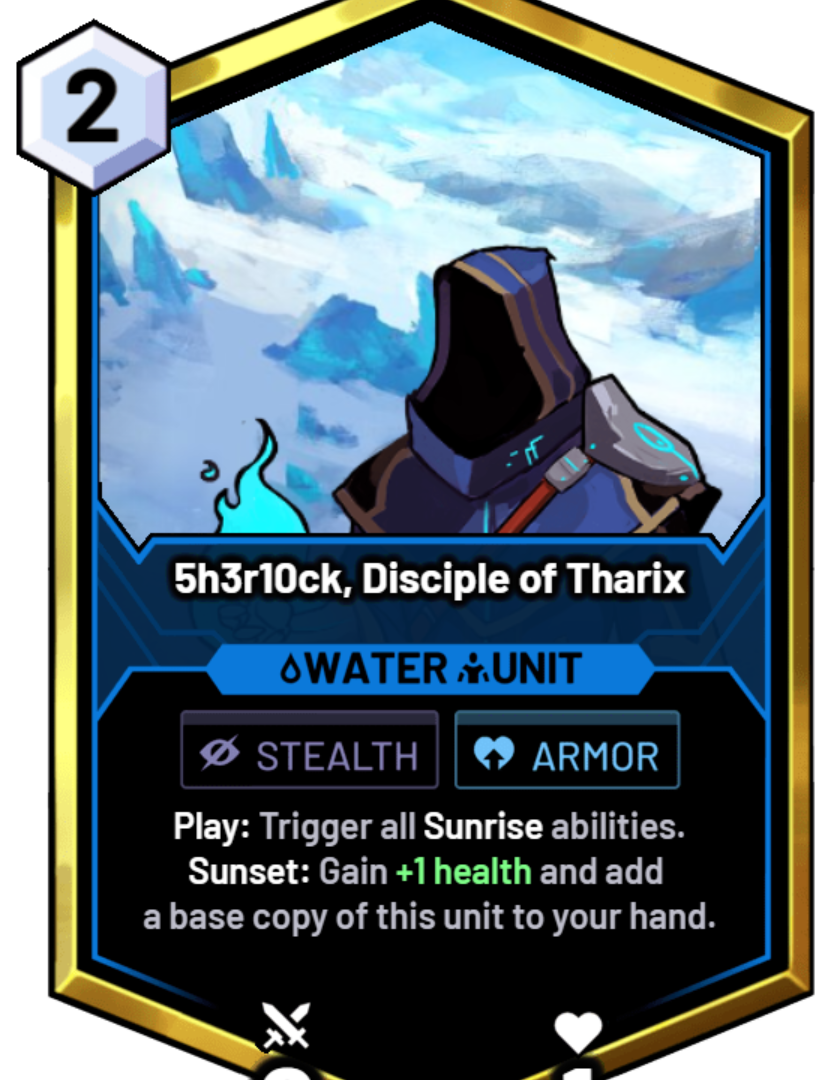

Audacity by Mantichore
“Risk everything to achieve victory. Your boldness and trickery will strike fear into the hearts of your foes.”
The Audacity Prism embodies cunning and grit. At their best, Audacity Skyweavers persevere through any obstacle and are not afraid to take risks or deception to achieve their goals. At their worst, they can become stubborn and reckless.
This Prism introduces a new mechanic called ‘Discard’ that activates whenever a card is discarded from your hand or your deck.
Card designs/families are based on luck games like poker, slots machines, etc. and on tricks and traps (ninjas, illusions, …). There is some luck involved, but the higher the risk, the higher the reward! The Discard mechanism is a way to ‘cheat’ out of the risk factor and is used to your advantage, for example to summon or buff cards.
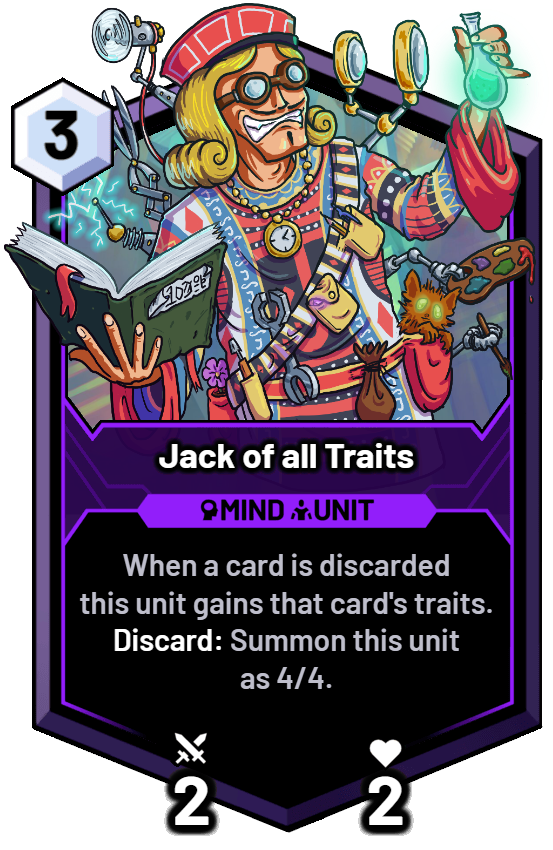




Instinct by SKRILL-FoxFang-
My prism is focused on predicting opponent and benefiting from the card they play, rewarding a bit more risk-taking and game knowledge.. how so ? well, the very core of the prism units’ effects are based on gaining knowledge about your opponent hand by barious means and interacting with your opponent’s plays and their cards and effects.
To support this prism I also created a new keyword that would be prominent to this prism, enter “Predict”. It can be described as reversed “Inspire”, which means instead of you playing a certain card to trigger the effect, let the opponent play it. This type of effect should bring uniqueness to the game and a 4th new layer, being interactions during your opponent’s turn, not only at the start or at the end of them due. “Sunrise” and “Sunset”
This may sound unreliable, but the idea is to restrict your opponent from playing certain cards on certain mana curves or predicting the opponent’s plays by keeping track of their hand. Such a prism should hold its ground against meta decks and certain archetypes quite easily if built optimally, upon game and deck knowledge.

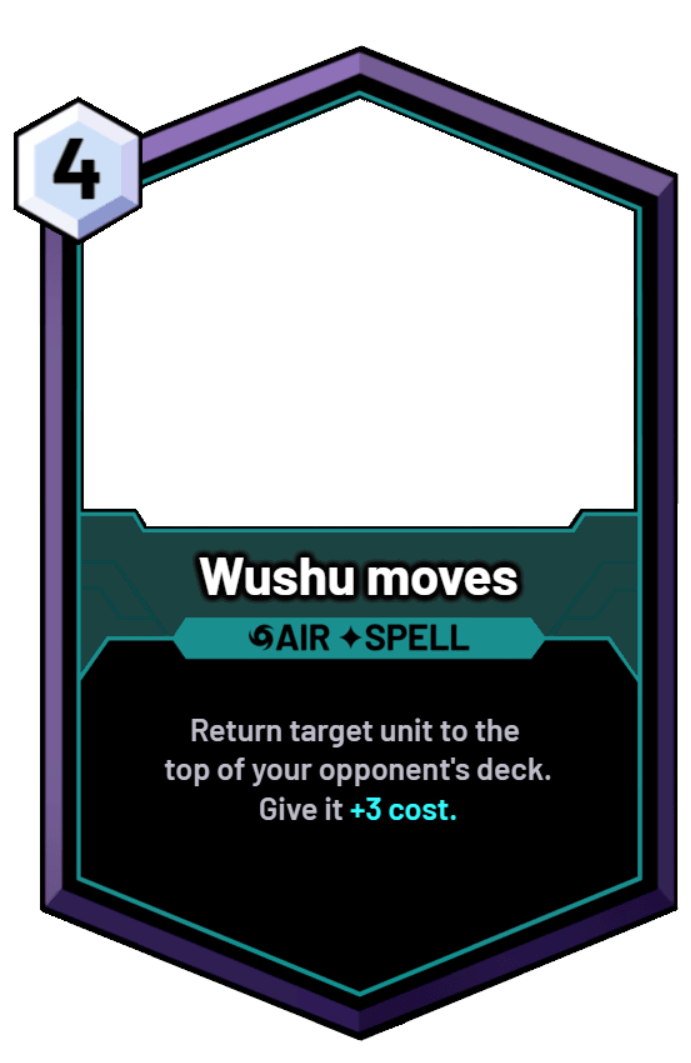


Charm by Infernix
The Charm prism thematically is all about charisma and adaptability but also espionage, manipulation and deceit. Gameplay-wise this means: information-gaining (e.g hand reveal), manipulation of card attributes such as traits/attachments/elements, as well as a general design philosophy that the same card should be able to have different effects depending both on the deck-building as well as the current game-state.

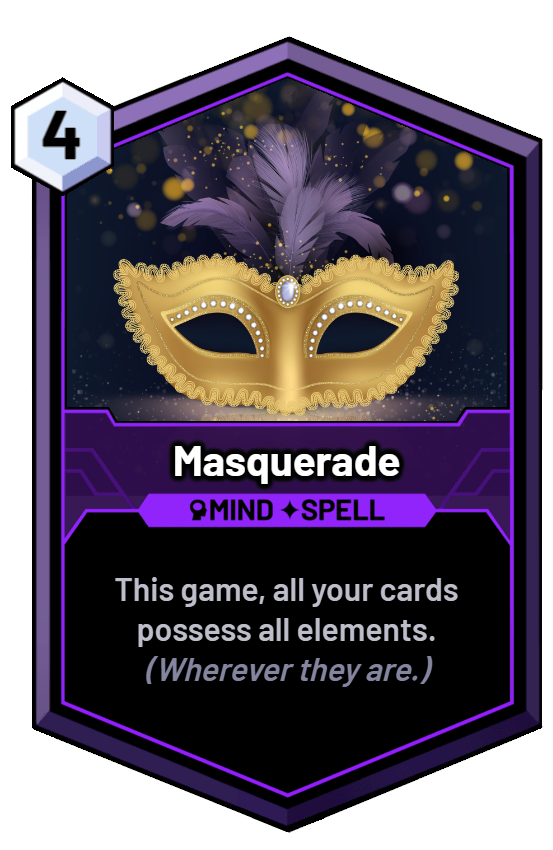
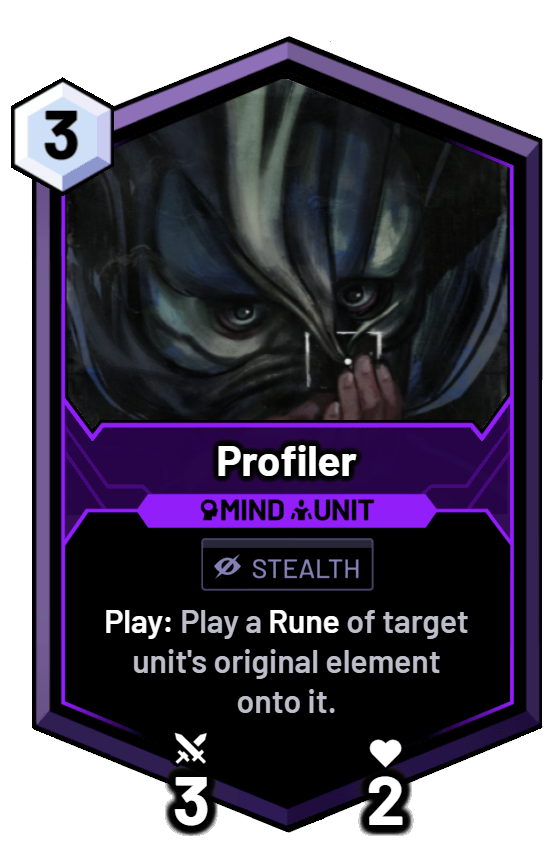

Stamina by Magical
Definition: The ability to sustain prolonged physical or mental effort. Prolongabilty is the only thing that seems to missing from the game. The goal is not necessarily late game, it is to keep the most units on the field at all times. You want card replacement, durability, boosts. A lot of cards should have either big defense and roots, or lower heath cards with barrier/shield. This also introduces a new Keword to the game. Dusted. When this card is dusted give your left most unit +1+1. Something to that effect, it does not have to be fully introduced, but you can write it out on a card.

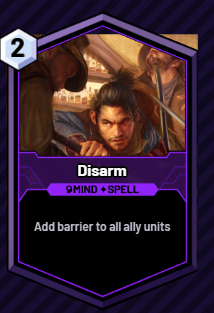
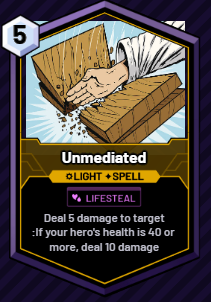
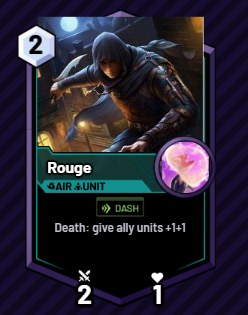
Nature by LemyBiB
The nature prism is focused around the earth, water, light and air elements. Often combining those elements for greater power. It tries to reuse cards multiple times by returning them from the grave or getting copies of a card. Nature also uses cards that make other cards more powerful and impactful. This prism should have access to healing tools as it is not aggressive and is very weak in the early game. Nature cards have a new mechanic (Combine). Combine keyword merges cards into one that has a cost equal to the highest cost of the merged cards. Because you get multiple effects for the cost of one, those cards are excellent for midgame stabilization.
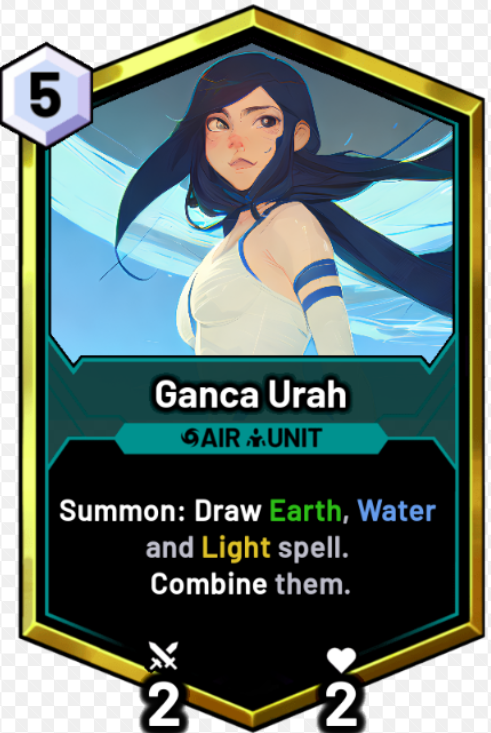

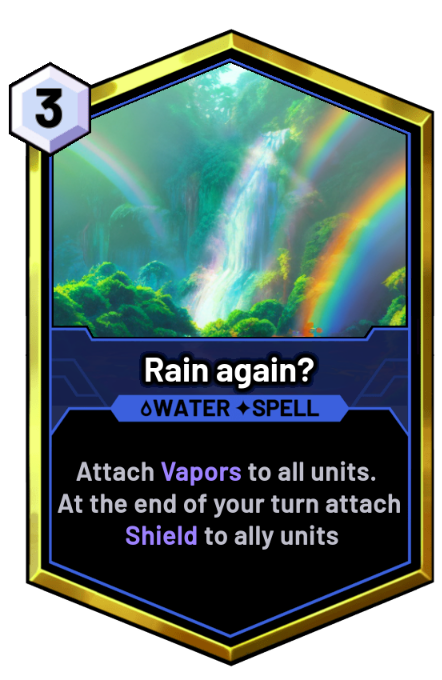


Void by Shpungo
The prism of Void represents the deep aching in each person that can never be filled. It is the instinct that pushes people to the edge of society, the curiosity to discover what lies beyond the hidden veil of Sky. Subjects of the Void lay claim to all the matter and souls that have been erased so thoroughly from existence that their remains never return to the grave, in a process commonly known as ‘Dusting’. By guiding these lost souls through the Void, they can harness their power to call other spells and wanderers to their aid through the power of ‘Conjuring’.
(Note: ‘Dust Pile’ refers to the cards visible below your graveyard, that have been dusted)
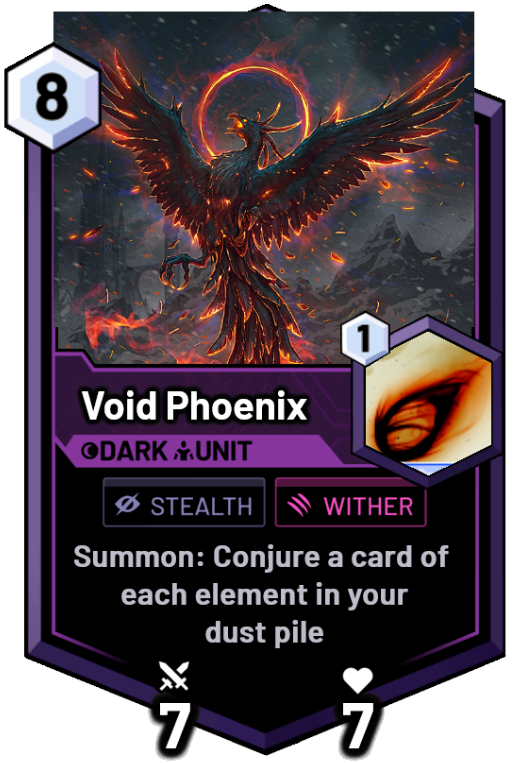



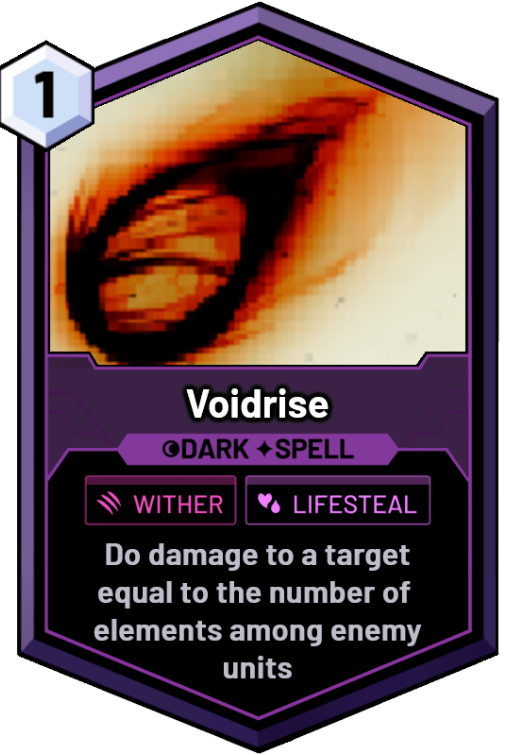
Magic by MusicalRainbow
Magic (MGC) is a prism that turns the impossible into a reality. As a RNG-based prism, this prism is all about bringing surprises to the board. You can either get really lucky and win by a landslide, or get really unlucky but still have fun with the randomness that happens throughout the match. Magic will also be the first prism to bring together STR, AGI, WIS, INT and HRT. Being able to conjure across all prisms, there are a ton of ways your game can go right or go wrong. The dilution of the conjure pool makes it so that you’ll never know if the card you’re getting is going to help or make the situation worse for you, making it harder to pull out proper synergies within the deck. With this prism, you aim to transform your field as much as possible, to both revive dying units and also to obtain random strong units that would help you win. While being able to RNG your own board, you can also RNG your opponents by changing or transforming their field, hand, and even deck. It’s all about going wild!
New term: TRANSFORM {Dust target unit to summon a unit from any prism.} *it dusts the original unit so Death effects won’t trigger on that unit

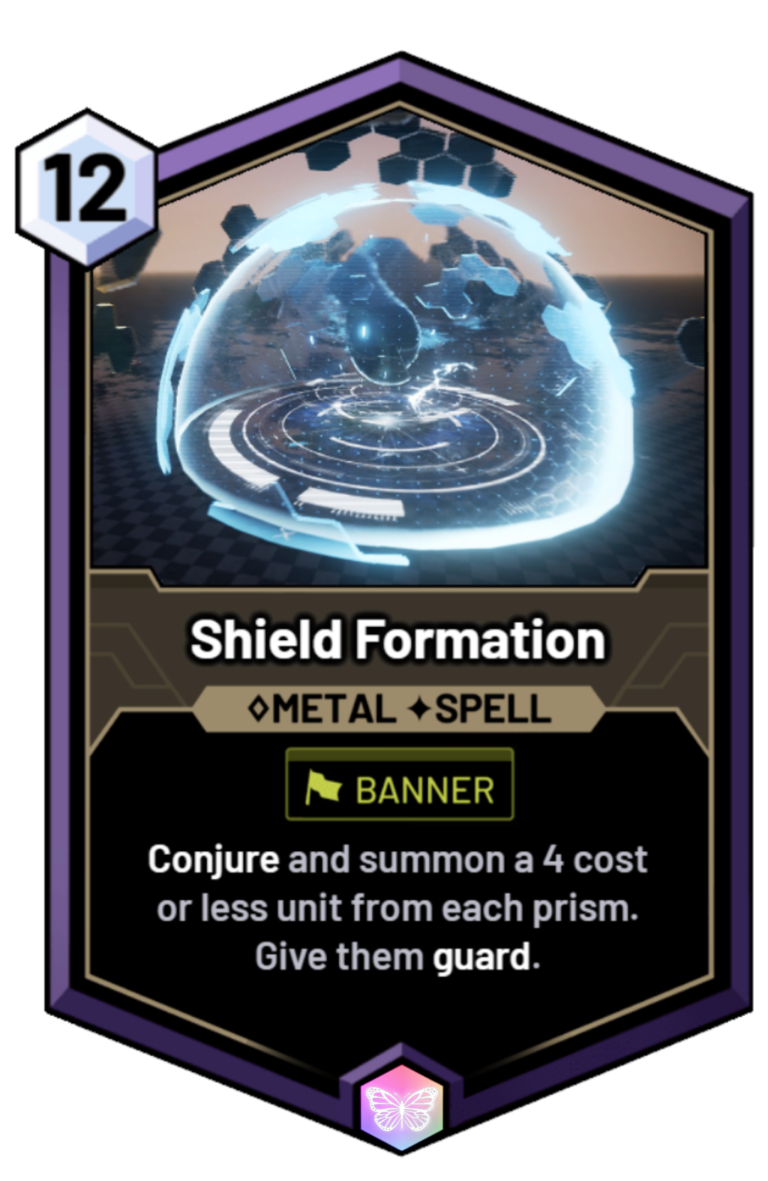
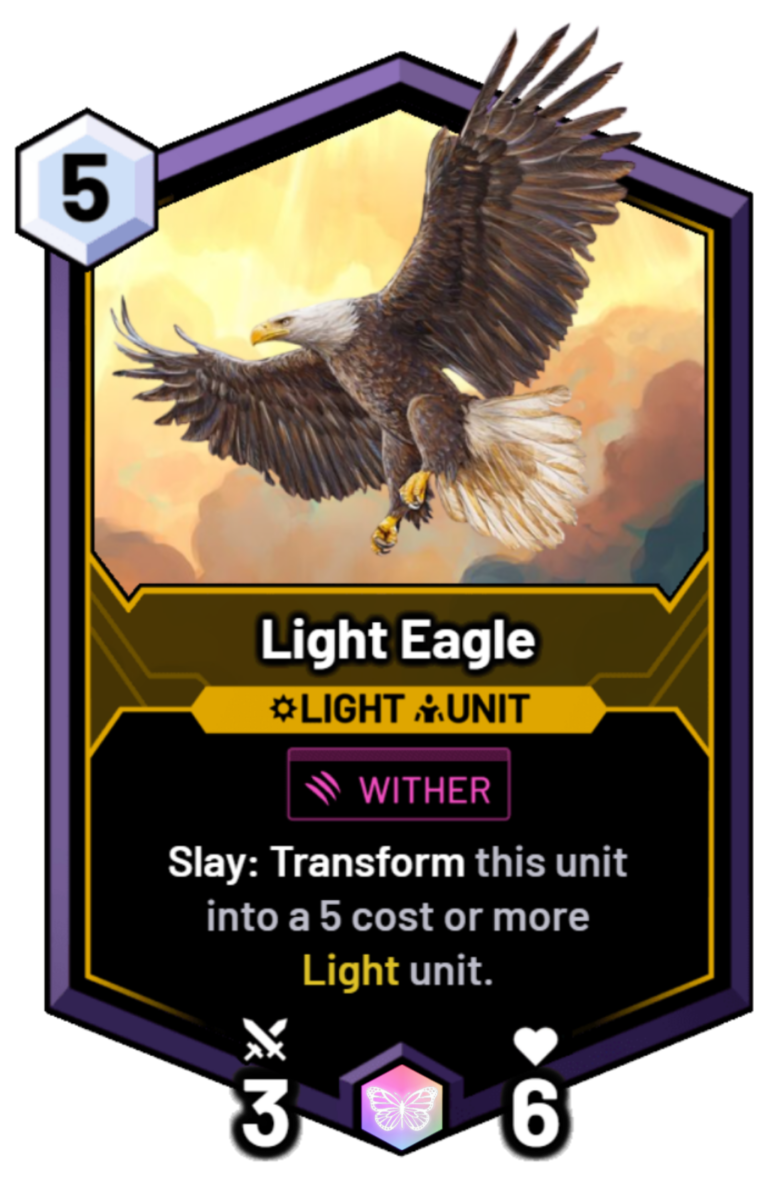

Mystic by Urban.nomad
“Have you ever wondered how the truest and purest form of Sky Source would look like?” -Banjo Lore: The Mystic prism embodies the inexplicable and unnatural forces in Sky. At their best, Mystic Skyweavers are guardians to every form of energy in Sky. At their worst, Mystic Skyweavers enjoy to bring chaos and corruption wherever they go.
Main Elements: Mind & Dark (no unit or spell can create a card of a different element) Stat distribution: Relatively low stats overall, but units and spells aim to buff the allies to compensate. Traits: Stealth & Lifesteal Predominant triggers: Summon & Play Gimmick: Considers attachments on the board in order to gain advantage while also punishes the opponent for leaving a unit with an attachment on the battlefield
